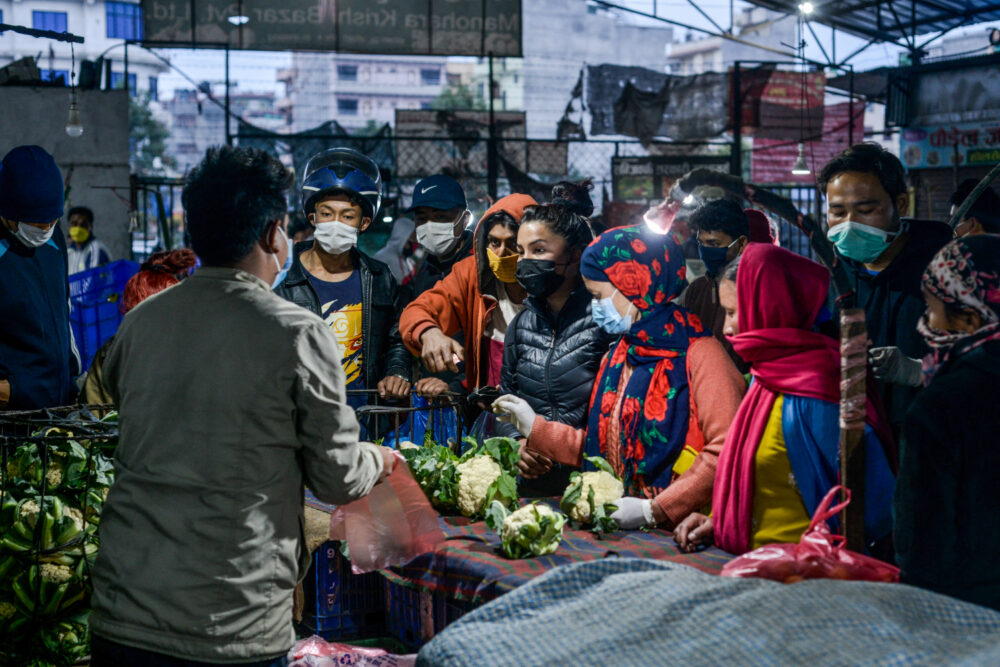As part of its response to the COVID-19 pandemic, Fondation Hirondelle supported the Nepalese news agency Outline Media during the second half of 2020. This support enabled Outline Media to organize trainings for journalists in Nepal and to produce and broadcast reliable news programs through a network of 20 radio stations in the country’s seven provinces.
“The impact of the COVID crisis on local media has been huge in Nepal” explains Abijit Sharma, Director of Outline Media. “Media houses closed down. Many journalists fell sick with COVID because of their daily contact with a lot of people. And of course, dealing with misinformation and disinformation was a big challenge for local media. A lot of “fake news” were spread and had a lot of success. One of the most popular, even endorsed by the Prime Minister himself, said that COVID could be cured with a traditional herbal tea. This kind of “fake news” led to a lot of confusion within the population.”
To improve Nepalese media’s capacity in facing these challenges resulting from the pandemic, Fondation Hirondelle gave support to Outline Media in the second semester of 2020. The project included news production and broadcasting, as well as training sessions for local journalists. A weekly radio talk-show, “Talking COVID”, was produced in Outline Media’s studio in Kathmandu with reporters sending in their reports from all over Nepal. Broadcasting was done through 20 radio stations countrywide, reaching several million people. “Radio is still very popular in Nepal, especially community radios, says Abijit. With our talk-show, we covered a lot of issues which were not covered by the commercial media. For example, we clarified that “immunity boosters” are not vaccines, and cannot protect from COVID as some people thought.” Each talk-show consisted of feature reports from the provinces, an interview with an expert, a global update on how other countries dealt with the pandemic, and questions and answers with a mental health expert.
The programme also included production and broadcasting of public service announcements (PSAs). On the training side, two sessions, each for 12 local journalists were organised. Distance coaching with Fondation Hirondelle’s COVID editorial expert, Suzanne Moll, was implemented. “Our senior journalists also travelled to the field, in the provinces, to engage with local journalists, listen to their grievances, and provide them with advice on how their media could adjust to the changing scenarios of the pandemic”, explains Abijit.
The program was funded by the Swiss Cooperation (SDC). The feedback from beneficiaries has been very positive, according Abijit, who shared some quotes, like this one from Somlala Gautam, a listener from Gandaki province : “I am happy that this program has started raising issues about fact vs. fiction at a crucial time like this. Our community is rife with fake news circulating about COVID-19. I think information provided by the program will go a long way in increasing people’s awareness.”

